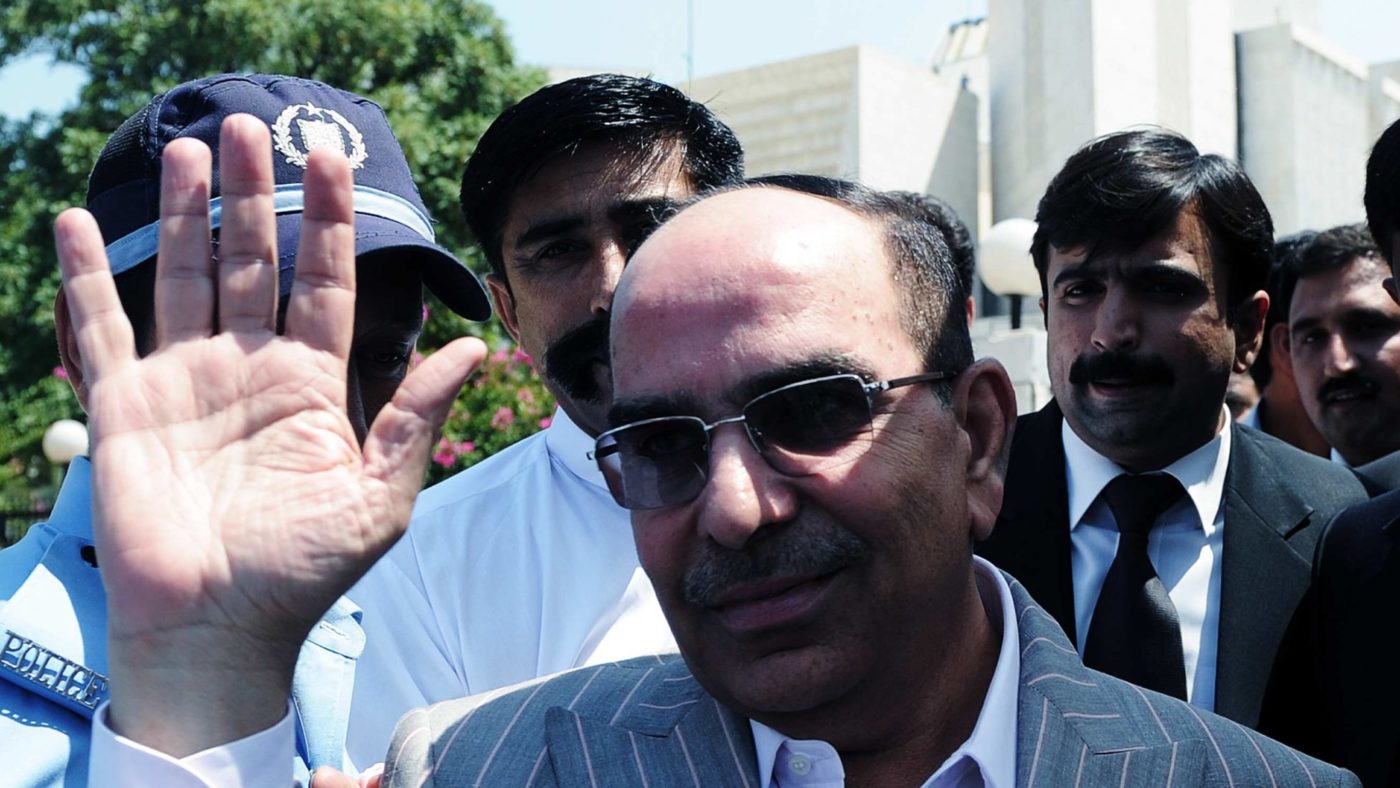Malik Hussain Riaz likes to do things big.
The property tycoon has built sprawling, private-housing developments in practically every city in his native Pakistan.
In Lahore he has built the country’s third largest mosque.
In Karachi he has built the country’s tallest tower.
And now, he has been forced into accepting the biggest ever settlement with Britain’s National Crime Agency (NCA).
More than £190m, including a £50m London mansion.
The money was extracted using unexplained wealth orders, a power introduced last year to help sniff out “dirty money” in the UK.
The extraordinary settlement with Riaz has been downplayed by Pakistan’s usually excitable media and members of prime minister Imran Khan’s cabinet were at first told to “remain silent about this affair”.
When the government broke its silence it was to announce that the NCA settlement would be used to help pay part of a $3bn fine imposed on Riaz by Pakistan’s Supreme Court last year. In other words, the money has effectively been handed back to him.
The affair speaks volumes about the rottenness of Pakistan’s corporate culture and the power of Riaz.
Anywhere else, he would have been put out of business years ago.
In 2010 a judicial inquiry collected testimony from dozens of peasant farmers who said Riaz had used men armed with guns and bulldozers to “forcibly occupy lands” near Islamabad they said he had not acquired. The local police, the presiding judge said, were “completely under the influence and control of Malik Riaz Hussain”.
In 2011 the Securities and Exchange Commission of Pakistan fined his company, Bahria Town, for marketing to consumers a new development on land it did not own.
In 2012 Riaz cheerfully admitted to attempting to bribe the son of the then chief justice. He theatrically published receipts itemizing £2m worth of gifts and luxury travel enjoyed by the young man in Europe. Riaz said he had expected the chief justice to stop investigating him in return. “I did not get any relief whatsoever”, he complained. (The chief justice’s son denied the scale of gift giving).
An official inquiry into the affair by Shoaib Suddle, a respected investigator, found Riaz appeared to be evading vast amounts of corporate and personal taxes. Suddle calculated that Riaz owed £790m in unpaid taxes, including fines. “Critical state institutions have been fatally compromised,” the report concluded, “resulting in virtually non-existent writ of law”.
Suddle’s discoveries had no impact whatsoever. His inquiry was shut down prematurely and his interim report buried.
Last year the Supreme Court found Bahria Town had illegally acquired vast tracts of state owned land for its Karachi development, the most gargantuan of all its schemes.
And yet, for aspirational Pakistanis Bahria Town remains the country’s top brand. Its gated-communities boast their own hospitals, schools and electrical grids that are better than publicly provided services found outside. Riaz has a flair for marketing gimmicks: he has built more than one stumpy replica of the Eiffel Tower, the Statue of Liberty and Trafalgar Square (minus the statue of Nelson).
The public see Riaz not as a corporate villain but a self-made, tycoon-philanthropist. He sponsors a cricket team and bankrolls soup kitchens. No other business personality is as famous. In British terms, he would be Richard Branson, Alan Sugar and Philip Green all rolled into one.
What accounts for this success? As he once famously put it himself in an interview, his speciality is putting “wheels on files” – a phrase understood to mean paying off those who can get things done.
It is often said Pakistan is a country controlled by its military. But that is not quite correct. The army, judiciary and political parties are locked in a permanent grapple. Riaz’s genius is making himself essential to all of them. The most senior generals, admirals and supreme court judges are recruited to Bahria Town’s payroll when they retire. He strives to befriend politicians of all parties. Khan, the self-styled corruption-busting prime minister, has been happy to be seen riding in Bahria Town aircraft (his party claim they pay for the privilege). The media – an ever present player in Pakistan’s power struggles – is kept onside by Bahria Town’s extravagant advertising budgets.
Having the warmest possible relations with all of Pakistan’s factions is as important to Riaz as acquiring cheap farmland outside major cities.
These friends in high places have allowed Bahria Town to ride out a series of scandals. In so doing, they have allowed the company to misallocate hundreds of millions of dollars into absurd luxury property schemes the country does not need. And they have enabled Riaz to become a poster boy for young Pakistanis who aspire to be entrepreneurs. They will be forgiven for thinking that getting rich in Pakistan is just a matter of putting wheels on files – very often, it is.
Worst of all, Bahria Town exemplifies Pakistan’s lack of robust rule of law, its shaky system of property rights and its particularly egregious brand of crony capitalism. It is no wonder foreign investors shun the country.
The UK pumps more development cash into Pakistan than any other country in the hope of boosting its economy and making it more politically stable. There is not much to show for it. By going after Malik Riaz, the National Crime Agency has done a greater service to Pakistan than any amount of money from the Department for International Development.
Click here to subscribe to our daily briefing – the best pieces from CapX and across the web.
CapX depends on the generosity of its readers. If you value what we do, please consider making a donation.


